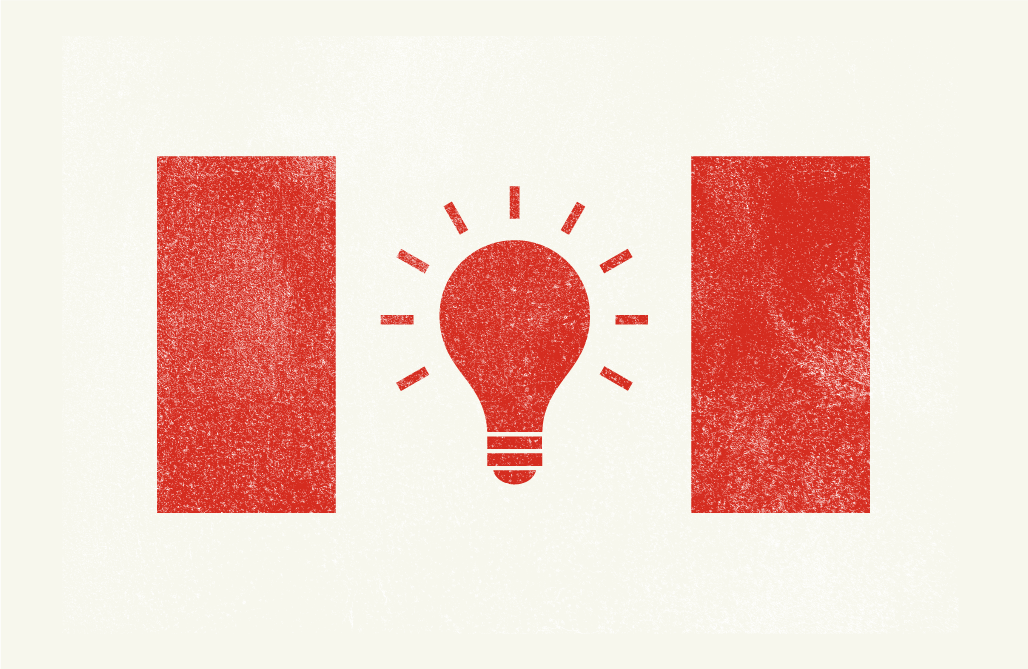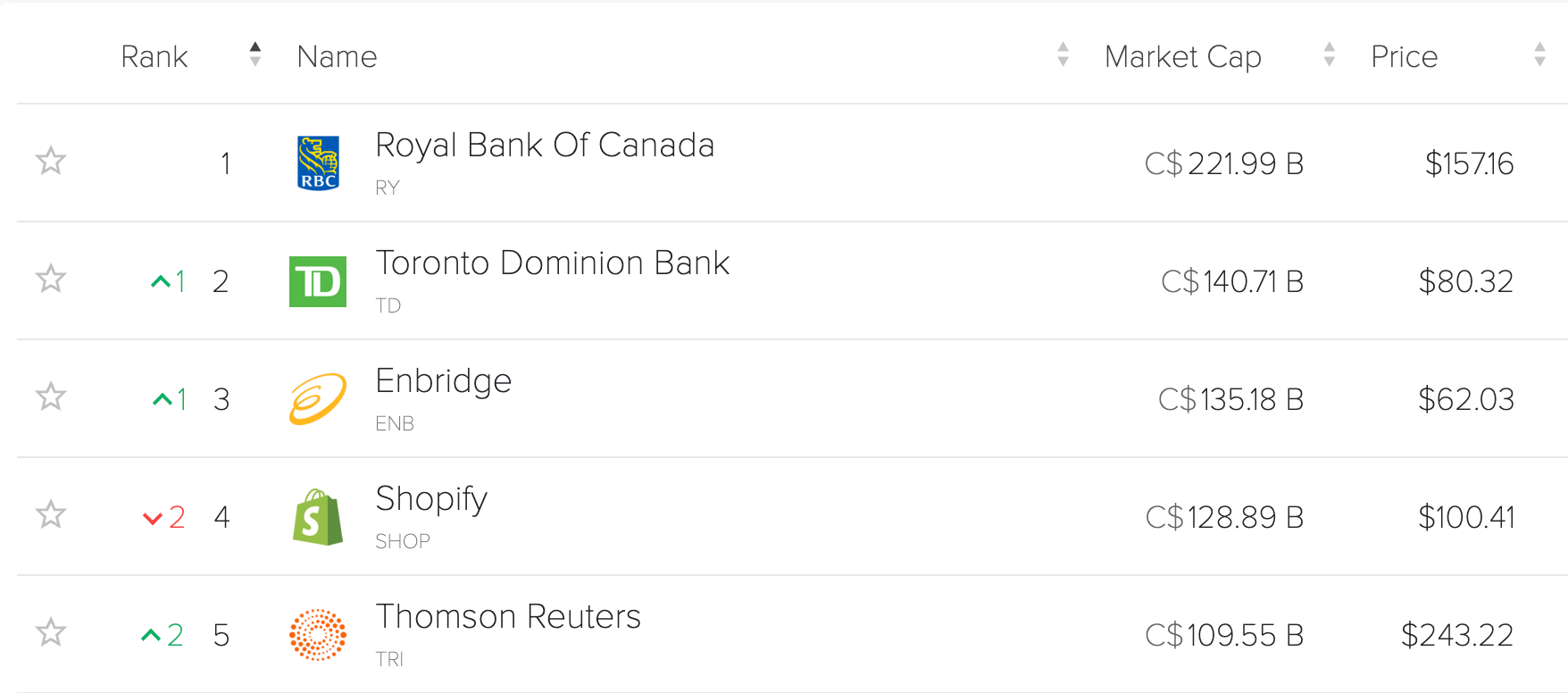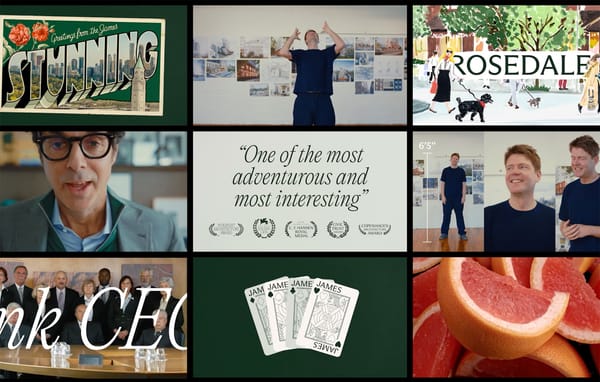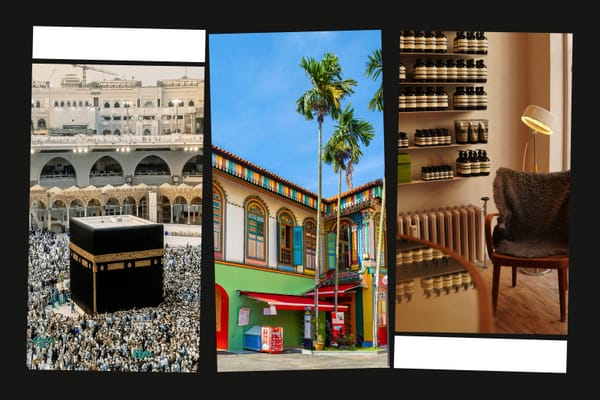No Tariffs on Ideas
Are we on the verge of the biggest opportunity in Canadian history?

Throughout the 18th and 19th century the Ottawa River was full of massive Eastern White Pine logs. Prized because they grew to over 150 feet tall with straight knot-free trunks, and primary used as masts for sailing ships, they were also shipped to the UK and Europe where they were milled and crafted into fine interior paneling, ornate cabinetry and furniture in Georgian and Victorian buildings.
Canada then imported many of the finished products.

This pattern of exporting its natural resources elsewhere to be turned into something more valuable is an enduring and unfortunate Canadian tradition. It ships raw materials to others who then turn crude into gasoline, nickel into phones, wheat into pasta, and talent into Silicon Valley unicorns.
On the list of the world's largest companies by market-cap there is one Canadian Company: The Royal Bank of Canada. So Canada is home to just one of the world's largest 100 companies while 10th in global GDP.
The world's top five most valuable companies by market cap are Apple, Microsoft, Nvidia, Amazon, and Alphabet. None are focused on resource extraction. They are focused on creating value through IP, manufacturing, design, platforms, networks, or data.
By contrast, Canada's top five most valuable companies by market cap are: Royal Bank of Canada, Toronto Dominion Bank, Enbridge, Shopify, and Thomson Reuters. The first two are effectively built on the wealth generated by natural resources. The third is energy. The fourth and fifth fit the model of the world's top five companies: They create value through new ideas that they then leverage to create immense value. Importantly, the only one of these companies that rank in the top 100 global companies is RBC, at 83.

So what does all this have to do with stories, and with design? Both are the answer to how Canada will build a more resilient economy with companies that compete globally.
Consider Japan. Throughout the 20th Century, it built a disproportionately long list of global companies known for design and technical excellence including Sony, Panasonic, Toshiba, Sharp, Fujitsu, NEC, Casio, Seiko, Ricoh, Toyota, Honda, Nissan, Mazda, Subaru, Mitsubishi, Suzuki, Isuzu, Nintendo, Sega, Capcom, Konami, and others.
Japan, without the richness of natural resources of Canada, was forced to innovate and create idea driven companies. Japan also built on an existing culture of design and craftsmanship.

This is the opportunity for Canada. It's not like it doesn't have the talent. The challenge is the attitude. Its lineage as resource extractors permeates the culture. It's the reason why, when presenting work to American clients, the response is usually along the lines of: Great, how can we make it better? Where in Canada it's often: Great, how can we make it safer?
Shopify offers an example of a Canadian company that leveraged the changing landscape when, in 2018 and 2019, tariffs on Chinese imports prompted U.S. businesses to explore direct-to-consumer strategies to reduce reliance on traditional retail channels. Their platform provided the necessary tools for this transition. Design and storytelling was the backbone of a user-friendly interface and comprehensive support that then attracted small to medium-sized businesses aiming to establish an online presence amid changing trade policies.
Of course, things change all the time and the best businesses respond to evolving business conditions. But Shopify is one example of how idea driven businesses find new ways forward amid shifting financial conditions.
For all this to work Canada needs three things:
- A Mindset Shift: Fundamental acceptance of the new reality that it should no longer rely on simple resource exports alone. It must leverage this new tariff driven urgency to create its own added value in the form of IP, platforms, products, and services. In other words, idea driven companies.
- A Refreshed Strategic Story: A real push on Brand Canada. What is its non-negotiable unalterable truth? What is the story that defines and drives who it is? What is the value it can offer to the world?
- Meaningful Support: Significant federal investment in supporting new idea driven small businesses in the form of tax incentives, more precision focused grants, and low interest loans.
Canada needs a brain economy, not just brawn. It needs jobs and profits to accrue in Canada and not elsewhere. The new world is scary, if we choose to let it be. But in challenge, is opportunity. Canada needs to embrace it.
Love, all ways,
Paddy




